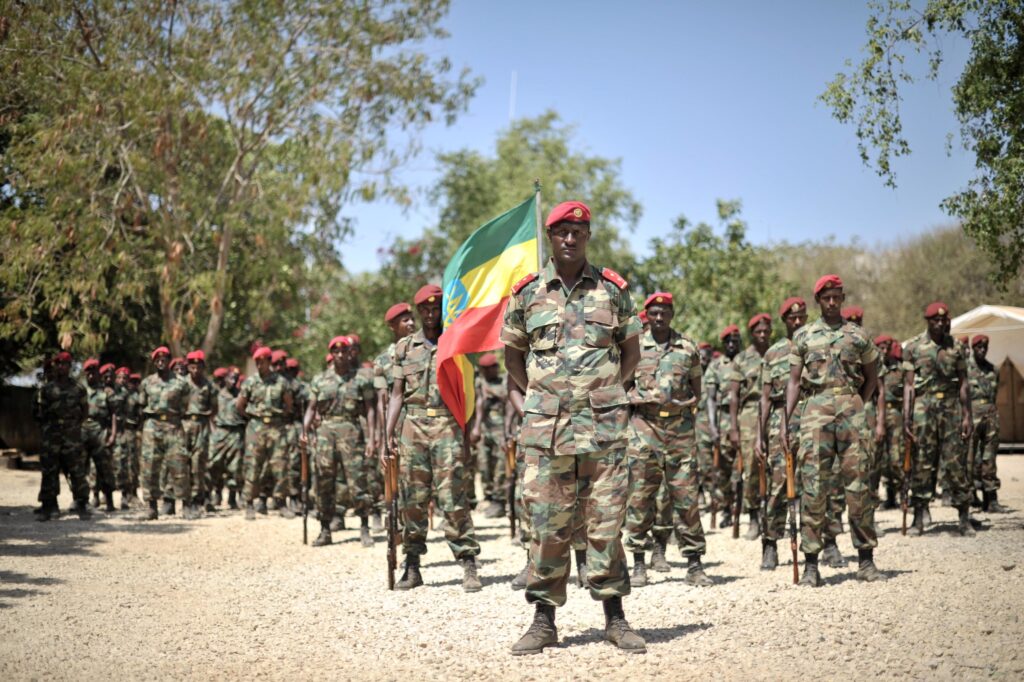This report is part of OLLAA’s monthly report series documenting the ongoing pattern of human rights abuses perpetrated against Oromo and other civilians, both inside Ethiopia and throughout the world. These reports also document the humanitarian situation in southern Ethiopia, including the effects of the drought and conflict on civilians.
Humanitarian News
- A malaria outbreak is affecting over 350,000 people across Afar, Oromia, and Southern Nations, Nationalities and People’s (SNNP) regions.
- The cholera outbreak continues in Oromia, Somali, Sidama, and SNNP regions.
- Conflict and roadblocks are impeding humanitarian access. IDPs in East Wellega are especially vulnerable.
- The suspension of the Black Sea Grain deal is threatening food aid for Ethiopia and other countries with great humanitarian need.
Human Rights Reports
- OLLAA has published six Humans of Oromia, detailing extrajudicial killings, abductions by non-state armed groups, and arbitrary detentions.
- Video of four peasants being stripped and beaten in front of a crowd in Jimma zone, Oromia region circulated rapidly in late July, drawing widespread condemnation of the cruel and degrading treatment depicted.
- The Ethiopian Human Rights Commission’s Ethiopia Annual Human Rights Situation Report for June 2022 – June 2023 details extensive human rights violations throughout the country, including in Oromia, which was highlighted as a site of frequent denial of due process rights.
- Seven Oromo Liberation Front (OLF) politicians are being held in direct violation of a court order, according to a Human Rights Watch investigation.

Peace and Justice News
- The African Union’s Commission on Human and Peoples’ Rights (ACHPR) has dissolved its commission investigating human rights violations during the war in Tigray.
- The Demobilization, Disarmament, and Reintegration (DDR) effort that began in Tigray region has broadened to encompass eight regions of Ethiopia, especially Amhara and Oromia. However, the disarmament process appears to have reversed in Benishangul Gumuz.
Other News
- The Ethiopian federal government’s recent doubling of the export tax on khat has devastated farmers’ livelihoods, especially in the Oromia region.
- After 5 months, social media and messaging platforms are once again available in Ethiopia. Access was blocked in response to anti-government protests regarding divisions within the Ethiopian Orthodox Church.
Conclusion and Recommendations
Southern Ethiopia, especially the Oromia region, has suffered from systematic human rights abuses at the hands of multiple Ethiopian governments. Despite Oromo leadership of the violently suppressed protests that led to Prime Minister Abiy’s rise to power in 2018, Oromos are still regularly targeted for extrajudicial killings, rapes, arbitrary detentions, and other acts of violence.
Indeed, the situation has only worsened since the Tigray People’s Liberation Front (TPLF) and the Ethiopian government signed the Cessation of Hostilities Agreement (CoHA) in November 2022. Government security forces and non-state armed groups have returned their focus to the south, especially Oromia, leading to an uptick in violence and an exacerbation of the humanitarian crisis.
Despite this dire situation, the international community’s attention remains fixed on the fitful peace process in the north. OLLAA fears that the continued failure of the international community to pressure the Ethiopian government to protect human rights and seek a peaceful means to end the conflict inside Oromia will only lead to further loss of life and the destabilization of the entire Horn of Africa.
As such, OLLAA calls on the international community to:
- Condemn the human rights violations noted in this report, as well as all other credible allegations of human rights violations throughout the country;
- Consider launching independent investigations into reports of human rights violations committed inside Oromia and across the country, and renewing and supporting the work of the UN International Commission of Human Rights Experts on Ethiopia;
- Pressure the Ethiopian government to implement a ceasefire with the OLA, pending further peace talks;
- Ensure provision of humanitarian assistance to all who need it across Ethiopia, including inside Oromia;
- Ensure all ethnic groups are included in any transitional justice measures, including inclusive dialogue processes.

